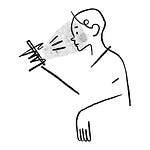Tsh talks with YA author Mitali Perkins about writing, reading, the pursuit of beauty and truth, and the magic of rereading childhood classics, especially when life feels uncertain.
Mitali Perkin's website
Forward Me Back to You, by Mitali Perkins on Amazon & Bookshop
Order Tsh's new book, Shadow & Light
Get Tsh’s weekly email, 5 Quick Things
Browse Tsh’s recommended books
Sign up for Tsh’s audio workshop, Create Your Rule of Life (pay what you want)
This is The Good List — I’m Tsh Oxenreider.
This is a work of art. Because in this episode, I’m sharing with you a recent conversation I had with my friend, Mitali Perkins, who writes YA fiction. My oldest daughter, Tatum, absolutely devoured her latest book, Forward Me Back to You, so I was thrilled to catch up with her and, of course, ask her what’s on her Good List.
We talk about writing, reading, the pursuit of beauty and truth, and the magic of rereading childhood classics, especially when life feels uncertain. A lot of Good List listeners are cut from the same cloth as Mitali, so I think you’re really going to like her. So, enjoy my recent chat with Mitali Perkins.
///
Tsh: Mitali hi, thank you for being on The Good List. How are you doing?
Mitali: I’m doing so well. Thanks for having me. I'm excited to be here.
Tsh: I am so, so glad. I have to say first off you're, are you primarily children's book author, or YA author? What do you call yourself?
Mitali: I call myself a writer of books for young people or young at heart, so I'd say about half of my books are aimed towards elementary and younger and the other half are for middle school and up.
Tsh: Got it. Well, that covers right, like all of youth. That's a good way to put young people. What I was going to say is you were the author of one of my daughter's favorite books of the past couple of years. It is such an honor to talk to you because I know she's going to be so excited to listen to this particular episode because she loves your writing. Thank you for what you do. If you can hear that there's a fighter jet going over our house right now, the joys of podcasting.
We'll get to that in a minute, but like what we do on this show, I love talking to people about one little thing in their life right now that is making their life sweeter and we call it The Good List. So Mitali, what's one thing in your life right now that's making everything just a little bit better.
Mitali: I am revisiting seven classic books from my childhood and just reading them deeply in this stressful time and this demoralized age we live in, it's been so wonderful to revisit those books that I loved as a child. They're really feeding my soul. I'm very much enjoying them.
Tsh: Okay. This is fantastic. I want to know a little bit more, why seven and what do you mean by reading deeply? So whichever way you want to go.
Mitali: I reread these books every year but I'm also in the process of writing a book about those books. The working title right now is Steeped in Stories and it's a look at revisiting books from our childhood to learn more about virtue actually in a demoralized age, how to sort of battle despondency and cynicism and anxiety and all the things that were, I think really have been exacerbated in this current climate. As I said, though, I reread those books every year, just for fun. As I'm reading them now, I'm reading them for not just myself, but for my audience, my future people that I want to convince to read the books with me, it's adding a whole different dimension of reading for oneself and then reading for others as well. That’s what's been new and fresh for me.
Tsh: Are we allowed to ask which seven or is that?
Mitali: Yes.
Tsh: Tell us.
Mitali: I'll just name a few of them. There's seven because I'm focusing on the seven virtues. There are four Cardinal virtues and three theological virtues in the church tradition. Each one I feel really explorers deeply one of the particular virtues. Right now, for example, I'm on book seven right now and the last book that I'm looking at is The Silver Chair by C.S. Lewis. And we're looking at the virtue of prudence, which is wisdom to make the right decisions, but much more than that. Each of these books features a different virtue. Also, in this thing that I'm working on, I know there's been a lot of discussion about whether or not we can even revisit children's classics, given that so many of them are laced with the mores of their age when it comes to race and culture and colonialism and all those things that that's causing a lot of controversy about whether or not we can read children's classics. I also am addressing that, given that I, myself, originated in a different culture a non-Western culture. So it's been interesting, and still there's still the depth that I'm finding from those books, despite their flaws, despite their failures, better speaking into my life and hopefully will speak into other people's lives as well.
Tsh: I love that you brought that up because both as a mom and as a teacher of great books, I literally teach a high school English class and we focus on the great books. This is something I wrestle with all the time. And in particular, this school year 2020, we're focusing on world literature and it was a challenge to find an assortment of books that were not just from the Western white perspective yet we're steeped in virtue. That we're a child's imagination, even in a teenager's life. And that's a challenge and yet I know they're out there. I'm happy to hear that you say that you both wrestle with this and have come to a peace about it. For those of us listening, what encouragement do you have for us regarding that?
Mitali: I think the key is discernment. In the book that I'm working on, I'm going to provide some guidelines for discernment when it comes to race, culture, and power. And the idea that every story is flawed, every age is flawed because every person is flawed. Flaws are going to creep into every story. And as the reader, it’s our responsibility to see those, discern those. And that's the writer as well. The problem is when it comes to children, they read much more with their hearts than their minds and that's why I think the controversy so fierce around children. Now you teach teenagers. I think by that point, they can join us in that journey of discernment. But when it comes to children who just read wide hearted and don't quite have, either themselves the capacity to discern or an adult in their life that can guide them to discern, then those stories become a little bit more powerful and perhaps dangerous in shaping their view of the other. So the question I think for grownups is different than for children when it comes to these books. In this book I'm working on, I'm working on providing a look at these children's books for adults, for grownups, which is very different than how I write it or introduce these books if I were teaching them to children.
Tsh: Yeah. Well, I like that you basically are making the point that we shouldn't maybe leave these classics just to the kids and we should join them in reading so that they can foster good discussions. And that's what I'm hearing you say is as the adult talking right now about what's on your good list, that it is these children's books, and it's not just for the sake of kids, it's actually helping form and shape and encourage you. Right?
Mitali: That’s definitely true. I think it formed the shape me as a child. And it continues to do that. These books that I read continue to help me so much in my own formation. I just finished writing a chapter on Emily of Deep Valley, which is about hope in terms of despondency. She really battles despair in the story. I began to wonder, is hope something that we're given or is it a practice that we can grow in? The book really illuminates both, that hope is given to us and yet it is also something we can grow in. I loved that book. It's a book that looks at the question of immigrants and refugees and in a very powerful, fresh way, even though it was written in the 1950s about a time about a century ago. As I'm reading that, it's not only inspiring me to want to continue to be involved with people who are aliens and strangers, but also to pursue hope in a time of despondency, not just to see it as a passive noun, but to ask for it, to seek it, but also to practice it in my own life.
Tsh: I love that you've brought up that who you are as a person shapes how it is you read and how it is you interpret stories because you're talking about how much these stories impact you as a child of immigrants and that that changes who you are as a reader. Tell me a little bit more about what that was like as a child, because you know, in the Western world, we’re steeped in Western stories and yet your parents are not from the West. Was that a struggle for you as a kid? Or was that something that you delighted in?
Mitali: I think as a child, that's probably a struggle. My next picture book for little kids that's coming out is called Home is in Between. It's this idea that as a child, when you're navigating two cultures, which I did growing up, my culture of origin is not only Bengali Indian culture, it's village Bengali Indian culture. That's where my parents are from. And then I came to California and it was this California suburban school. I was constantly going back and forth across borders. Now at that time it was stressful. But now once you survive that, it is such a gift because you realize so early that there's beauty to be found in every culture and there are flaws in every culture and you live closer to the margins, which is really the best place to be. And you can almost imagine any life because you've managed to, it's a skill you gained as a child of fluency and code-switching is what we call it, code-switching that you acquire as a child serves you for a whole life. I feel sorry for people who are monocultural, who've never had to cross borders. Who've never done that as a child. It’s one of the reasons why I write books and hope that all kinds of kids will read my books, even though they do feature Brown kids like me, I'm hopeful that lots of kids will read them across borders as they read my stories.
Tsh: And I think you're making a case right now for one of my favorite reasons for reading to begin with, or to read it all is, when we can't travel like we want, or we can't expose ourselves as much as we want to all sorts of ways of life and thinking and experience, we can via a book. That's the next best thing to actually being there and your books, whenever you feature Brown kids give White children or any other kids, right? The chance to interact and become friends with, even though they're imaginary characters, characters that are different from them and for them to see the universality of so much of what books make great, the things that all make us human and more similar than different.
Mitali: And as you're talking, I was wishing you were my English teacher back in the day because it sounds like you're very adaptive in that approach to literature, which I love, the idea that stories are the best way to become fluent in imagination as a child so that you can really, as I said, imagine being in somebody else's skin, which is really a gift for the rest of your life. It’s a skill that you can offer both to others and to yourself. So yes, I would say story is a great way to do that. I did that. We didn't have much money when I came here to America, I would go to the library, check out my allotment of seven books, how ironic back then it was seven books I could check out and I'm writing about seven books, but I would climb out on the fire escape outside our New York apartment in the hot summer days and I would have my little roll of sweet tart candies, and I would just read and read and read. I had traveled so far and wide. Now I know a lot of those books were shaped by Western views of life. What I had to offset that was a robust pride in Bengali heritage that was inside the apartment and the stories and the poems that came from my parents. Bengalis had two categories in the world, there's Bengalis and non-Bengalis and it's too bad for you if you're non-Bengali. It wasn't like we were trampled down by this Western imperialism of story. I grew up with very solid sense of who I was as a Bengali person and the ancestors that came before me. It was very balanced I felt in my life. Thank goodness. I know that there are different people who do feel overwhelmed by Western stories to the point where they can't retain their own pride of identity. But I feel like my father was valiant in passing that on.
Tsh: I love that. It sounds like you had for all intents and purposes, a magical childhood, in all the right ways, steeped in both the reality of your human experience and an endless array of stories and that's how it should be as a child because stories shape us as children into the adults we become. I imagine there are some listeners right now thinking this is all well and good, but how on earth does she have time to read the same children's stories every year? Tell me a little bit of the practical, or are you just a fast reader or do you read mostly just these and not new things? Tell me a little more about your reading life.
Mitali: I am a fast reader. I read constantly. It's what brings my stress level down. It can be an addiction. I remember my mom's scolding me put away that book, put away that story book and do your homework. That was what got me in trouble because that was, and I would always eat and read, which is a terrible habit. Still have that potato chips, SweeTarts, that kind of thing, all good, really wonderful habits, but it would just bring my stress level down and it still does. Something that gives you joy like that, isn't a task. It's just something I do for fun. I do it for pleasure. I also though do it professionally. I've judged children's book awards. A couple of years ago I did the National Book Award. I was a judge for the Kirkus prize last year, which means I read dozens and dozens of books, but this is my profession. I am a career writer of books for young people, and I have to read stories. So sometimes it's professional, but always it'gives me joy to escape into story beause like I did that as a stress relieving mechanism when I was young and it continues to do the same for me today.
Tsh: I tend to attract an audience of a lot of book rooms. I imagine a sizable portion of the listeners right now are drooling thinking you get to read for a job, how do I get that?
Mitali: I know. My most recent Facebook post was, I said, this is why I love my job, this week I get to reread The Silver Chair by C.S. Lewis and reflect on the virtue of prudence. I mean, that's my job. I'm getting paid for that. I endured my years and years of rejection, there was 13 years between book one and book two, or 12 years. And that was the time of rejection where I almost gave up on this vocation. But thanks be to God, I didn't. It's not like I haven't been seasoned by a lot of closed doors in career slash vocation, which I like to see it as both.
Tsh: For sure. At the time this episode's going out, your latest book is now in paperback, right? Tell us a little bit about that.
Mitali: Yeah. My book Forward Me Back to You, which is a novel for, I would say high school and up is told in two voices. It's two characters. One is named Kat and we meet her in the aftermath of an assault where she's managed to fend off a guy in her school that attacked her. She thinks because she's a jujitsu champion that she's strong enough to weather it because she pushed him away. She fought him off. He wasn't able to do anything. He was the one with the injuries and she's strong. She's tough, but she's very damaged by this. And it takes a little while to see that she has been traumatized by this. She is desperately in need of hope and healing. And then the other character is Robbie, who is adopted by his White family. He's born in Kolkata, India, and adopted by a white family when he was three, he's growing up in Boston and he's ready to graduate in high school. And he has no idea what he wants to do with his life. His parents are very successful, intelligent, and wealthy, and he just doesn't see himself in them. He doesn't quite know what he wants to do and he feels this kind of numbness. It ends up with them, both going together, with a team of people from their church to Kolkata, to learn more about human trafficking. That's the story. It's a story really of hope. The theme really is that our best contributions to this world really can come from the hardest parts of our own story. Both Kat and Robbie discover that it's really, the title is Forward Me Back to You because you can't go back in the past to fix pain in the past, but you can go forward in your journey to become a healer yourself. And that's what both of them discover.
Tsh: And can I just say, as a parent of a teen, I find more and more these days that it is hard to find YA that is uplifting and also well-written, if you know what I mean, like it's quality literature and it's also got good stuff in it. It is steeped in virtue, like what we talked about at the top of the show and your book is a great example of that. I remember when Tate finished your book, I was already in bed about to fall asleep and she came in and brought me the book, and she's like, I'm just gonna put this here on your nightstand because you have to read this. It’s so good. To me that was a testament that she loved your book, because she has very high standards.
Mitali: Can I hire as my personal assistant staff intern?
Tsh: She probably would not hate that.
Mitali: That's always so wonderful to hear from teens that they found it was hopeful that it gave them a sense of courage, especially if they've known people who've experienced trauma, if they're adoptees themselves or just are struggling with making sense of things that are happening around them that are causing them to fear that when they say they've taken hope from something I've written, it's just the best information of it as a vocation.
Tsh: Yeah. Well, keep doing your vocation because we need it. We need it both as readers and as parents and as just people steeped in story. I'm excited to read this new one that you're working on right now, any projection as to when it might come out or is that just way in the future?
Mitali: No, it's going to come out next year, I think in the fall. It's from Broadleaf Books and it’s due. You've written under a deadline so, you know, it's due the end of this month and that's why I'm feverishly writing. I'm going to go on retreat to finish up the last threads of it. It's a very deep book for me to write because it comes out of that between cultures place I talked about earlier, that that's kind of a place of pain for myself and my past, right? It's a way to process these stories, which some people would say were negative in my life. But to take ownership of them. I did that as a child. I took ownership of the story. When a story belongs to both reader and writer, right? You've seen that in your classes. It's given to the reader, but the reader then takes it and makes the story what's the reader wants. To take that power away from the reader, even as a child reader, I feel is not right. We want to empower those child readers to take charge of the stories and to have dominion over them. Right. That's the goal and that's where it's written from. I know it's going to be controversial. Well, hopefully people will read it enough to be controversial. Because it does talk about those issues of race, culture, and power in the classics. And I know you know as well as I do, books like Little House on the Prairie and many other books are being discussed with great controversy about whether or not children today can even read them. That's very tender to me this book so hopefully, my readers and your listeners will enjoy it once it comes out.
Tsh: It sounds totally up our alley, those of us who hang out here. You sound like the perfect author for it, too. Thank you for writing it. Thank you for what it is you do and thank you for this chat. I look forward to sharing your work with everybody listening.
Mitali: Thank you so much for having me, you know, I could talk about books as I know you could for hours and hours. Sometime we'll have to meet in person and have a good long Indian food lunch and talk and talk.
Tsh: That is my love language: books and amazing food. Perfect. We'll do that. And honestly, I'll just have you on the show again, because I always love, this sounds kind of, I don't mean it in a sadistic way, but I always, it's a good sign to me when end conversations wanting more, like I want it to keep going, because that means I'll just have you back and we'll keep talking. I'd love to have you back again sometime to keep talking books and what's on your good list and all that stuff because you just sound like a person I would love to hang out with, so let's do it.
Mitali: That's always a great compliment, but your listeners can find me all over the internet as you just said, Forward Me Back to You has just been released in paperback. I'd love to hear if you guys read it, what you think of it.
Tsh: Yeah. We'll put all the links to everything in the show notes so people know where to find you online. I follow you on Twitter, where you get your books, all that good stuff. People will find you easily.
Mitali: Great. Well, thanks again so much.
Tsh: Thanks Mitali...Alright, bye.
///
A big thanks to Mitali for taking the time to share with us what’s on her good list. You can find her latest book, Forward Me Back to You, anywhere you shop for books, and also in the show notes of this episode, #45. She’s also got several other great novels, like You Bring the Distant Near, Secret Keeper, Rickshaw Girl, and many others, all of which you can find on her website at MitaliPerkins.com. A little reminder that my latest book, Shadow & Light: A Journey Into Advent, is officially out in the world, and you can also find that at your favorite bookstore, in the show notes of this episode, or at shadowandlightadvent.com.
As a reminder, I’m on Twitter @tsh and every now and then on IG @tshoxenreider, but I mostly like to connect with you through my free weekly email called 5 Quick Things, which I send it out most every Friday morning. To get it, go to fivequickthings.email and sign up for free, or again, find the link in this episode’s show notes, #45, at thegoodlistshow.com.
Music for the show is by Kevin MacLeod, and thanks, as always, to Caroline TeSelle and Kyle Oxenreider for their help, as well as my furry intern, Ginny. I’m Tsh Oxenreider, and I’ll be back with you soon — thanks for listening to The Good List.










Rereading Childhood Faves